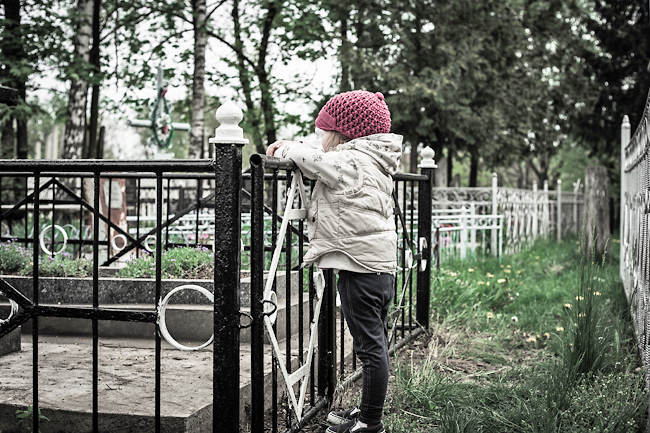Elena Lister & Michael Schwartzman
THE WASHINGTON POST – Just before the holidays last year, the seven-year-old daughter of Michael’s patient begged her to make cookies, but she didn’t want to.
The next day, the child asked again, and her mother snapped, “No! Please stop asking.”
Sobbing, the girl said: “But we always have those cookies! Gran made them every year!”
The patient’s mother had died a year ago, and it was the first holiday celebration without her. Just as for her family, the holidays can be an especially difficult time for those grieving loved ones.
Associate professor at the University of Arizona Mary-Frances O’Connor, author of The Grieving Brain explained, “Grief is the natural response to being aware of a loss and, during the holidays, you are going to be more aware because we carry out all the rituals we’ve always done with the people we’re close to.”
In the past years, a huge number of people have lost family members, friends and co-workers to covid-19 and other causes, including a daunting number of children who lost one or both parents or caregivers.
People often ask us how to cope with grief during the holiday season and especially how to help children navigate this emotional time of year. Here is some advice we give:


CHECK IN WITH YOURSELF
Thinking about your own needs first regarding a loss will put you in a better place to help your child.
Michael’s patient was surprised by her impatient reaction to her daughter’s request for Gran’s holiday cookies.
“I felt so upset when she asked. I didn’t know I was feeling so sad still,” she said. “It’s been nearly a year since Mum died but… I guess we’re all hurting still.”
It may seem difficult to think directly about a loss, but the idea is to parse out your thoughts and feelings to do something with them – otherwise they may catch you unawares, as they did the patient.
CHECK IN WITH YOUR CHILDREN
You may not know how to talk with your child about the impact of a loss on the holidays but saying nothing can leave children worrying alone. Instead, talking to your children in a truthful age-appropriate way creates connection.
Ask them what they’re thinking: “The holidays are coming up. Do you have any thoughts about how you want to celebrate?”
They may not offer a fully crafted plan, but their responses will likely provide insight into their feelings. Check in at different times as a holiday approaches and share any proposed activities so they can share their thoughts.
HAVE A PLAN
Creating a plan to acknowledge your loved one’s loss can give you a sense of control and allow you to organise and allocate feelings.
For one of us, this holiday season will activate memories. It is the 26th since Elena’s six-year-old daughter Liza died. The loss will be compounded by the recent death of her beloved mother-in-law.
Elena and her family have a plan in place – to decorate the table with daisies, her mother-in-law’s favourite flowers, and to make the chocolate chip cheesecake that Liza loved. Other plans could be to light a candle, reminisce and share memories, watch a movie or listen to music your loved one enjoyed, or to visit their grave or place of rest.
RESPECT EVERYONE’S GRIEVING NEEDS
It wouldn’t be the holidays if someone didn’t feel overwhelmed, excited, angry or distressed, and emotions are likely to be heightened when you are grieving.
Things can get especially complicated when family members want to honour their loved ones in different ways.
This occurred last year to a patient, a father of two, whose wife had died. While his son wanted to set a place for their mother at dinner, his daughter didn’t want to celebrate the holidays. What to do?
First, make sure everyone’s voice is heard. Try to fulfil each person’s wishes in essence if not in the exact details.
Find a compromise. Emphasise respect for each other’s needs.
Remember that whatever you end up doing this year can be changed as needs evolve. A death can make certain rituals bittersweet, reminding us that our loved one is gone, life is fragile and change is inevitable.
Consider creating a fresh tradition if old ways seem painful.
One of Michael’s patients took her children camping over a holiday after her husband died, a new experience and one that freed them to remember their husband and dad as they wished, without the trappings of how everything used to be.
Holidays need not fit anyone else’s images of a perfect celebration.
Therapist Nimali Jayasinghe said, “Normative images of large, joyous gatherings can bring on feelings of discomfort – and pressure – in those who are grieving. I’d like to see more images of people celebrating over Zoom, or in peaceful solitude, or volunteering at a community kitchen.”
SHOW YOURSELF SOME CARE
Therapist Kimberly Grocher noted that many of her clients, especially women of colour, “have been taught to keep pressing on, without being able to really express their grief”.
She advised, “Be gentle with yourself and show some self-compassion.” Keep to routines with healthy food and enough sleep, when possible, especially for children.
SET BOUNDARIES
If you don’t have energy for the Thanksgiving parade, don’t go. Let others take the children or stay home and watch it on TV together. The holidays don’t have to be perfect.
If the holiday spirit is overwhelming, take a break. Watch non-holiday movies or get out into nature – and boost your well-being at the same time.
Be aware that a January letdown often occurs as festivities draw to a close, leaving some feeling low.
Embrace the quieter mood as a time to relax, recharge and recover from the physical and emotional intensity of past weeks.
AIM FOR CONNECTION
The antidote for loss is togetherness – one that works for you. With planning, you can navigate the season, remembering your loved ones on your terms, and bringing their memories forward.
Your conversations with your child as you handle these difficult times will bring you closer, creating moments to cherish.






